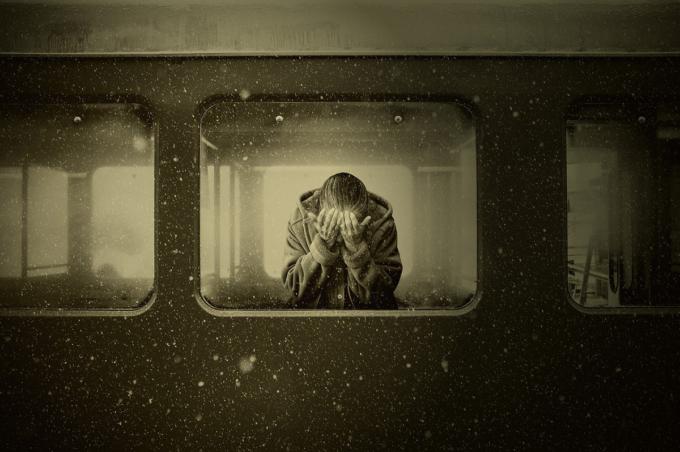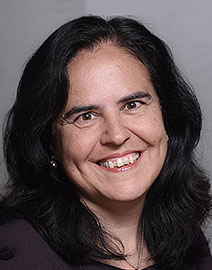
Faith
These problems of loneliness and, yes, abandonment, are by no means confined to older persons. Indeed, the same Surgeon General's advisory highlighted the growing social isolation of teenagers and young adults as well.

Silecchia
Four years ago, Pope Francis inaugurated the "World Day for Grandparents and the Elderly." He proposed that this day would be observed each year on the Sunday closest to the July 26 celebration of Christ's grandparents, Sts. Joachim and Anne.
In past years, two of the themes chosen celebrated the comforting closeness of God to older persons -- "I am with you always" in 2021 and "His mercy is from age to age" in 2023. The 2022 theme, "In old age they will still bear fruit," was a celebratory reminder of the contributions that older generations make to their communities.
This year, though, I was struck with the deep, aching poignancy of the theme Pope Francis selected: "Do not cast me off in my old age." This theme seems neither comforting nor celebratory but tragically real for all too many.
In his message for this day, Pope Francis speaks of the way that "loneliness is the bleak companion" for too many of our elders, and the way in which the fear of being alone, abandoned, dependent, or burdensome grips too many hearts. This message acknowledges the depth of that fear and laments the ways in which our societies and even our families can cast aside those seen to be a burden or an inconvenience.
This is a sobering theme and one that does not sugar-coat the ways in which too many of the communities that bind us to each other are weakening. As Pope Francis laments, "the passage from 'us' to 'me' is one of the most evident signs of our times." The families, neighborhoods, clubs, parishes, societies, and civic organizations that once formed the heart of a community have, in too many cases, become increasingly far-flung, less vibrant and more disconnected.
Indeed, just last year, the U.S. Surgeon General issued an advisory entitled "Our Epidemic of Loneliness and Isolation." In secular terms, that advisory sounded an alarm about the same loneliness to which Pope Francis has directed our attention. Among the findings in that grim report were three that I found particularly shocking. First was the finding that, of American adults, a mere 39 percent said they "felt very connected to others." Second, only 16 percent "reported that they felt very attached to their local community." Only 16%! Third, as of 2020, "only 47 percent of Americans said they belonged to a church, synagogue, or mosque" as opposed to 70 percent as recently as 1999. In all the years that this question has been asked, this was the first time that membership in religious communities fell below 50 percent.
These problems of loneliness and, yes, abandonment, are by no means confined to older persons. Indeed, the same Surgeon General's advisory highlighted the growing social isolation of teenagers and young adults as well. Yet, this fourth World Day for Grandparents and the Elderly is an invitation to reflect with particular focus on the ways in which we may, intentionally or carelessly, abandon our elders.
Pope Francis' message does not, however, end with despair. He described with great appreciation and admiration the ancient example of Ruth who did not abandon her elderly, widowed mother-in-law, Naomi. Naomi encouraged Ruth to leave and pursue her own life, unburdened by caring for Naomi. But Ruth replied, "Do not press me to go back and abandon you!" The pact between the generations was sealed, Naomi was not abandoned, and Ruth herself was richly blessed. Ruth became the mother of Obed, who was the father of Jesse. Jesse, in turn, became the father of David into whose house Christ Himself entered our humanity.
This beautiful example of solidarity between generations is presented for our times as a challenge and an opportunity. It is a challenge to place ourselves in the service of our elders. And it is an opportunity to answer the plea, "Do not cast me off in my old age" with the words of Ruth. They are the words that dispel the loneliness that can be a "bleak companion" of ordinary time.
- Lucia A. Silecchia is Professor of Law and Associate Dean for Faculty Research at the Catholic University of America's Columbus School of Law.
Comments
Comments Policy
Recent articles in the Faith & Family section
-
Scripture Reflection for July 28, 2024, Seventeenth Sunday in Ordinary TimeJem Sullivan
-
What the universal call to holiness entailsDr. R. Jared Staudt
-
Loneliness in Ordinary TimeLucia A. Silecchia
-
Is a parish required to provide a screen and kneeler in the confessional?Jenna Marie Cooper
-
How we fightJaymie Stuart Wolfe


















